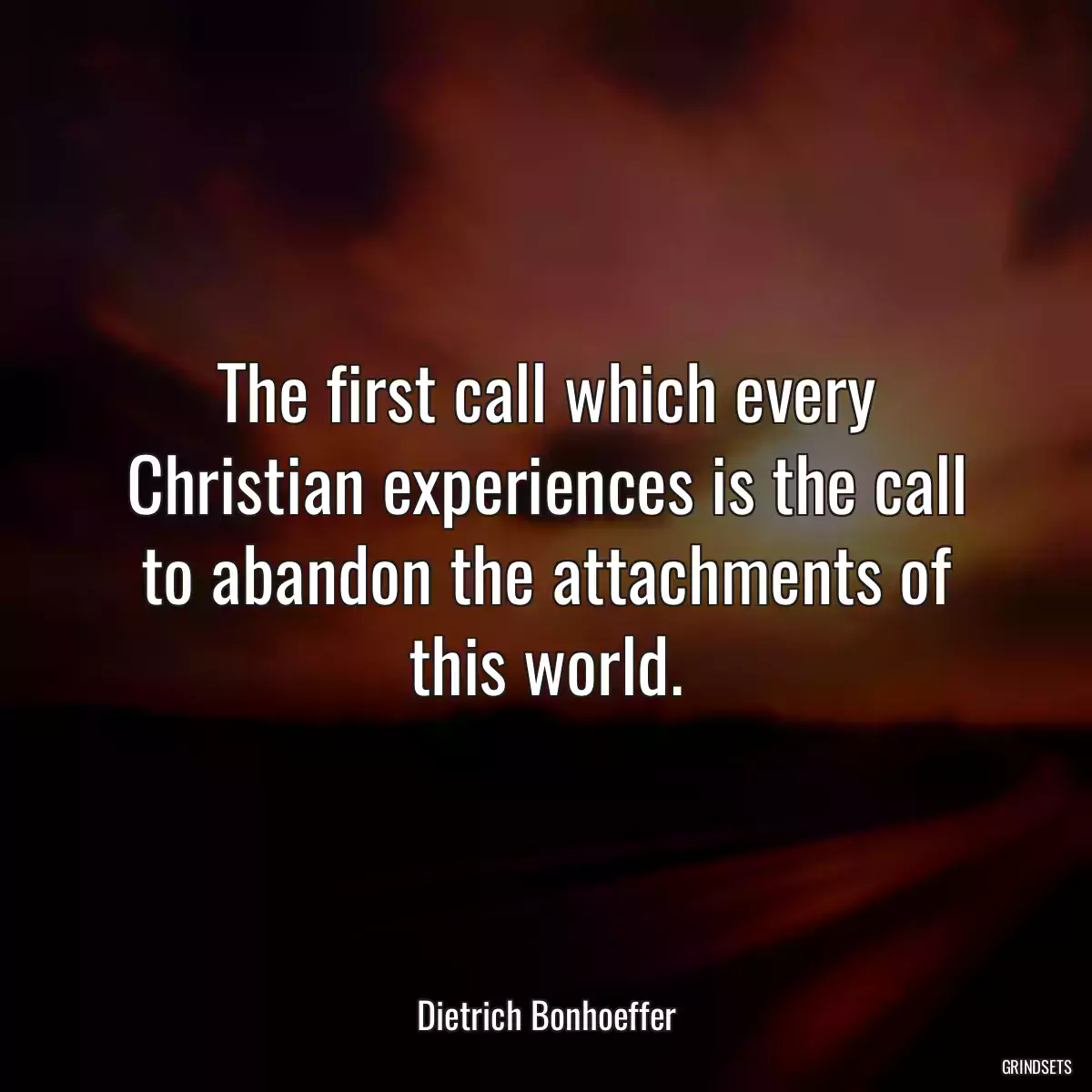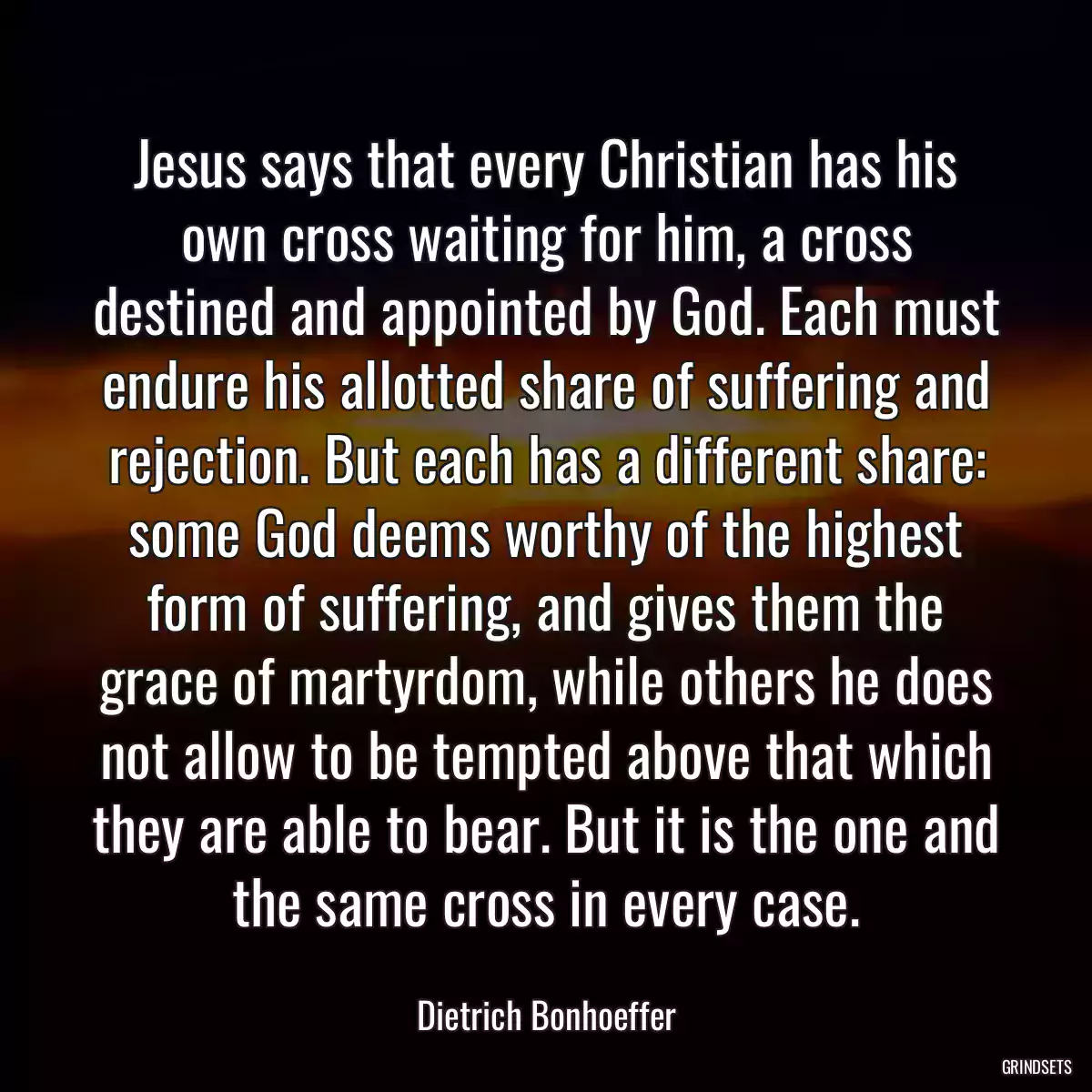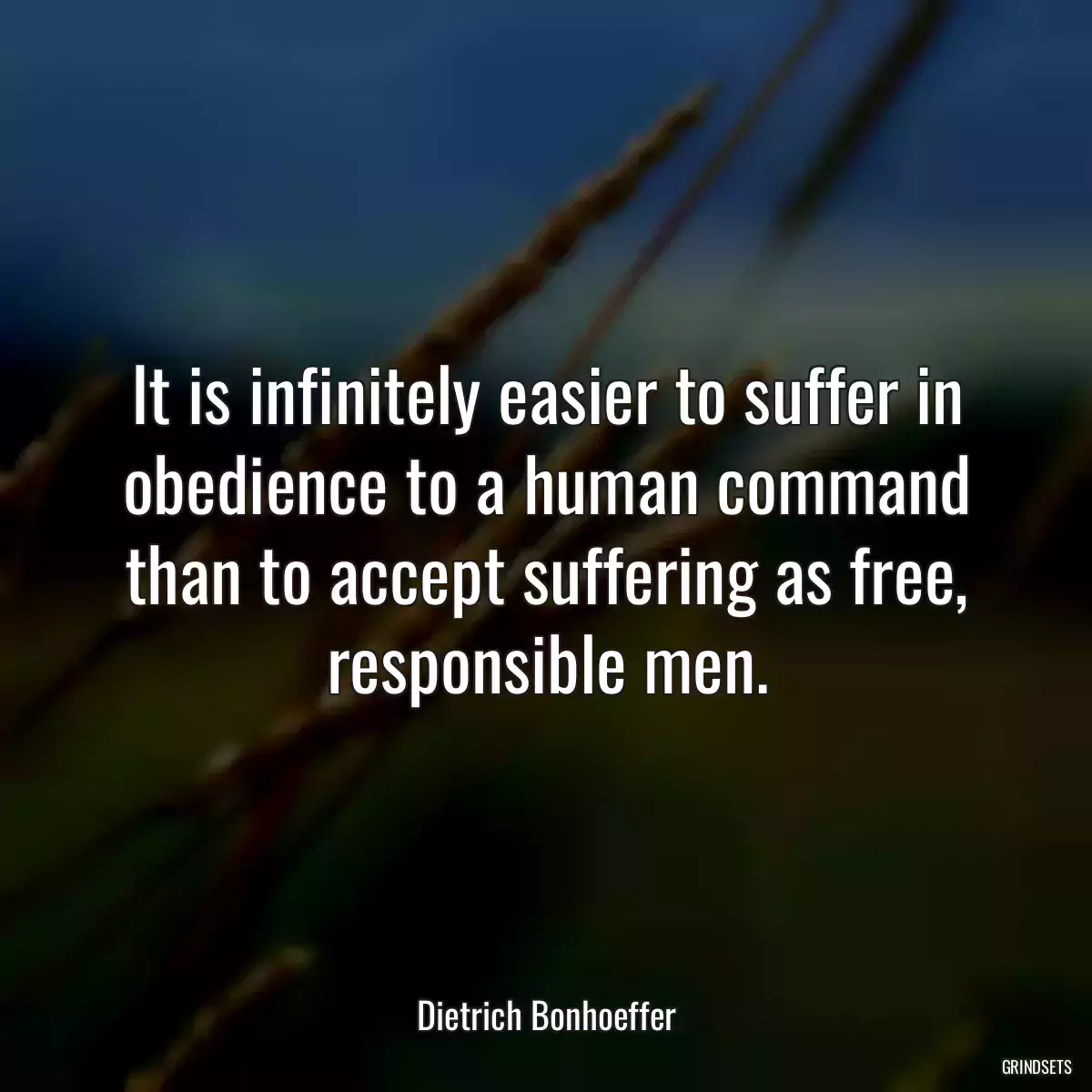
Quotes Dietrich Bonhoeffer
Find dozens of Dietrich Bonhoeffer with images to copy and share.

Nothing can be more cruel than the leniency which abandons others to their sin. Nothing can be more compassionate than the severe reprimand which calls another Christian in one’s community back from the path of sin.
The essence of optimism is that it takes no account of the present, but it is a source of inspiration, of vitality and hope where others have resigned; it enables a man to hold his head high, to claim the future for himself and not to abandon it to his enemy.
Destruction of the embryo in the mother's womb is a violation of the right to live which God has bestowed upon this nascent life.
You may also like
Whenever the Psalter is abandoned, an incomparable treasure is lost to the Christian church. With its recovery will come unexpected power.
God is in the manger, wealth in poverty, light in darkness, succor in abandonment. No evil can befall us; whatever men may do to us, they cannot but serve the God who is secretly revealed as love and rules the world and our lives.
Destruction of the embryo in the mother's womb is a violation of the right to live which God has bestowed upon this nascent life. To raise the question whether we are here concerned already with a human being or not is merely to confuse the issue. The simple fact is that God certainly intended to create a human being and that this nascent human being has been deliberately deprived of his life. And that is nothing but murder.
Only in Jesus are we able to pray, and with Him we also know that we shall be heard.
I believe that God both wills and is able to bring good out of everything, even the worst... I believe that even our mistakes and wrongdoing are not fruitless.

Jesus says that every Christian has his own cross waiting for him, a cross destined and appointed by God. Each must endure his allotted share of suffering and rejection. But each has a different share: some God deems worthy of the highest form of suffering, and gives them the grace of martyrdom, while others he does not allow to be tempted above that which they are able to bear. But it is the one and the same cross in every case.
There is nothing that can replace the absence of someone dear to us, and one should not even attempt to do so. One must simply hold out and endure it. At first that sounds very hard, but at the same time it is also a great comfort. For to the extent the emptiness truly remains unfilled one remains connected to the other person through it. It is wrong to say that God fills the emptiness. God in no way fills it but much more leaves it precisely unfilled and thus helps us preserve -- even in pain -- the authentic relationship.
Absolute seriousness is never without a dash of humor.
The disciple simply burns his boats and goes ahead. He is called out... The old life is left behind, and completely surrendered. The disciple is dragged out of his relative security into a life of absolute insecurity... out of the realm of the finite...into the realm of infinite possibilities.
By his willingly renouncing self-defence, the Christian affirms his absolute adherence to Jesus, and his freedom from the tyranny of his own ego. The exclusiveness of this adherence is the only power which can overcome evil.
With an abstract idea it is possible to enter into a relation of formal knowledge, to become enthusiastic about it, and perhaps even to put it into practice; but it can never be followed in personal obedience. Christianity without the living Christ is inevitably Christianity without discipleship, and Christianity without discipleship is always Christianity without Christ.
Discipleship means adherence to Christ and, because Christ is the object of that adherence, it must take the form of discipleship. An abstract theology, a doctrinal system, a general religious knowledge of the subject of grace or the forgiveness of sins, render discipleship superfluous, and in fact exclude any idea of discipleship whatsoever, and are essentially inimical to the whole conception of following Christ....Christianity without the living Christ is inevitably Christianity without discipleship, and Christianity without discipleship is always Christianity without Christ.
Let him who cannot be alone beware of community... Let him who is not in community beware of being alone... Each by itself has profound perils and pitfalls. One who wants fellowship without solitude plunges into the void of words and feelings, and the one who seeks solitude without fellowship perishes in the abyss of vanity, self-infatuation and despair.
In Jesus Christ we have been chosen from eternity, accepted in time, and united for eternity.
You may also like

Cheap grace is the idea that "grace" did it all for me so I do not need to change my lifestyle. The believer who accepts the idea of "cheap grace" thinks he can continue to live like the rest of the world. Instead of following Christ in a radical way, the Christian lost in cheap grace thinks he can simply enjoy the consolations of his grace.